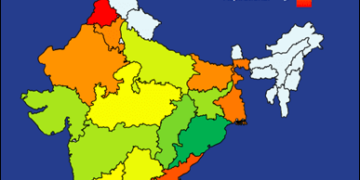Prominent Muslim organisations in Bihar have announced a boycott of Iftar, Eid Milan, and other official events hosted by Chief Minister Nitish Kumar and his party, in protest against their support for the Waqf (Amendment) Bill 2024. The move is echoed by similar actions in Andhra Pradesh and at the national level, targeting leaders allied with the BJP-led NDA government.
Why Are Minority Groups Protesting?
- The Waqf (Amendment) Bill 2024, cleared by a Joint Parliamentary Committee and expected to be tabled in the current Budget Session, has drawn strong criticism from Muslim groups who fear it could allow encroachment or seizure of Muslim properties managed by Waqf Boards.
- Organisations such as Jamiat Ulama-i-Hind (JUH) and the All India Muslim Personal Law Board (AIMPLB) argue the Bill threatens constitutional protections and deepens the economic and educational marginalisation of Muslims.
- In Bihar, groups including the Imarat Shariah have formally declined invitations to government Iftar events, stating that Nitish Kumar’s support for the Bill is a betrayal of his secular promises and minority rights.
Planned Protests and Political Fallout
- Large-scale protests are planned in Patna and other state capitals, with Muslim organisations, allied MPs, and social groups uniting to oppose the Bill.
- Some Muslim leaders within JD(U) have publicly criticised the party’s stance, and at least one district leader has resigned in protest.
- Political observers note that this rift could significantly affect the electoral prospects of Nitish Kumar’s Janata Dal (United) and its NDA allies, especially with Assembly elections approaching in 2026.
Broader Context and Significance
- The Waqf Act was last amended in 2013. The new Bill is presented by supporters as a measure for transparency, but opponents view it as an attack on religious freedoms and minority rights.
- JD(U) leaders insist the Bill will benefit the community and claim the opposition is creating confusion, but this has not quelled dissatisfaction among many Muslim organisations.
- The boycott is seen as a symbolic protest, but it also signals a shift in the relationship between Bihar’s ruling party and a key section of its traditional support base.
Actionable Takeaway: Minority community members and voters in Bihar should follow developments closely, participate in public consultations or protests if concerned, and scrutinise party positions on the Bill as election season nears.


















